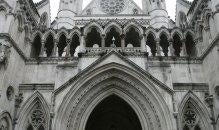
MPs have condemned the ‘super-injunction’which was used by oil company Trafigura to stop journalists reporting a question tabled in the House of Commons.
The injunction, which was imposed on 11 September, was varied at around 1pm yesterday after lawyers Carter Ruck withdraw their opposition to a challenge due to be brought by The Guardian at the High Court at 2pm.
The injunction had by that time been rendered ridiculous by users of the social networking site Twitter, and by other websites, which pointed out that the question tabled by Paul FarrellyMP regarded an injunction brought by Trafigura last month banning The Guardian and others from publishing the contents of the Minton report about the alleged dumping of toxic waste in the Ivory Coast.
Carter Ruck last night insisted that curb on reporting Farrelly’s question was an unexpected consequence of the 11 September injunction.
Farrelly said yesterday in the Commons: “The question was printed on the Order Paper yesterday and relates to the activities of Trafigura, an international oil trader at the centre of a controversy concerning toxic waste dumping on the Ivory Coast. The question also relates to the role of its solicitors, Carter-Ruck. I understand that yesterday Carter-Ruck, quite astonishingly, warned The Guardian of legal action if the newspaper reported my question.
“In view of the seriousness of this, Mr. Speaker, will you accept representations from me over this matter and consider whether Carter-Ruck’s behaviour constitutes potential contempt of Parliament?”
Speaker John Bercow appeared to indicate that the attempted injunction was over-ridden by parliamentary privilege.
Bercow said: “It is not sub judice under the House’s rules. It has already been published on the notices of questions, and it is also available on the Order Paper and, indeed, on the parliamentary website. There is no question of our own proceedings being in any way inhibited.”
Liberal Democrat MP David Heath said: “It seems to me that a fundamental principle of this House is now being threatened by the legal proceedings for an injunction and the consequent proceedings for contempt of court in respect of injuncted material. As you know, we have enjoyed in this House since 1688 the privilege of being able to speak freely.
“We have also developed the right of British citizens to know what we say in this House and have it reported freely. Is there an opportunity for a wider debate on what I think is a very substantial matter, either through a consideration of privilege or on the Floor of the Chamber?”
And Conservative MP David Davis said: “This is a new class of injunction, a so-called super injunction, in which the press are not even allowed to report the injunction itself and the existence of the case. That is how Parliament’s reporting has been stopped by it. Could you undertake to the House to do two things? ‘First, will you take legal advice to see whether the courts can be instructed not to grant injunctions that close down reporting of this place? Secondly, will you seek a meeting with the Secretary of State of Justice, who I know is sympathetic to this–it is not a party matter–to see whether the Government can act to achieve that same aim?”
Bercow said he would look into the matter.
Email pged@pressgazette.co.uk to point out mistakes, provide story tips or send in a letter for publication on our "Letters Page" blog

